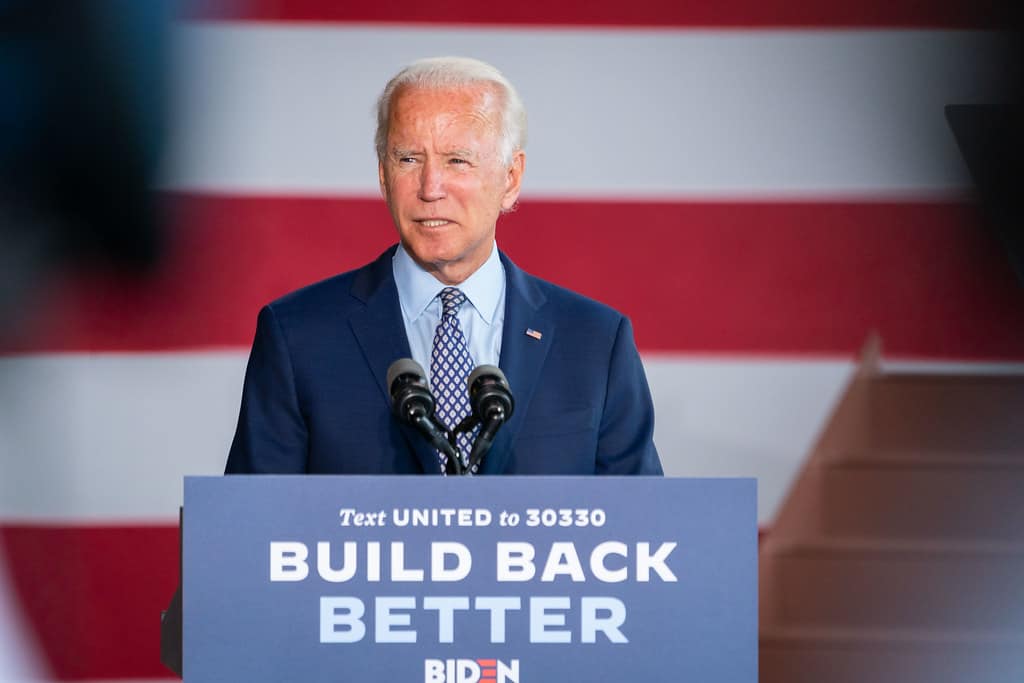Hannah Finnie is a writer in Washington, D.C. interested in the intersections of work and culture. She is a graduate of Harvard Law School.
The House Rules Committee unveiled yesterday the latest version of the Democrats’ tax and social spending plan that they are aiming to pass through the budget reconciliation process. The latest version of the bill, which the Biden administration considers part of its Build Back Better agenda, includes significant increases to the size of financial penalties that labor enforcing agencies can levy against companies with existing labor violations.
Specifically, the current iteration of the spending plan allows the National Labor Relations Board to set penalties of up to $50,000 against companies with existing unfair labor practices, and that penalty could double in some instances. The bill also still has provisions to expand the size of penalties for certain violations of the Fair Labor Standards Act (FLSA) and fines ordered by the Occupational Safety and Health Administration (OSHA). For example, the maximum fine for an employer that violates child labor law and results in a death would rise from $50,000 to $601,150. OSHA’s ability to enhance its fining ability – and likely its deterrent effect, too – would also increase. One example is that for repeat or willful violations by an employer, under the current version of the bill OSHA would be able to fine the employer up to $700,000, a massive increase from the current maximum of $136,532. The bill would also permit OSHA to fine employers for a serious violation up to $70,000, another large increase from the current maximum penalty of $13,653.
In addition to increasing the financial penalties available to agencies that enforce labor violations, the bill would also enhance the budgets of labor law-enforcing agencies, thereby giving them the ability to put these increased penalties to use.
The bill as it currently stands would also increase child care funding, including funding for a universal pre-K program, but its family leave proposal has been dropped.
At Harvard, one of the unions that represents student-workers remains on strike. The strike began Wednesday, after an initial authorization vote passed easily at the beginning of the school year. Over the summer, the union’s contract ran out after negotiations with the university stalled. The union’s standing demands include: higher wages (Harvard’s current proposal for raises does not match last year’s increase in inflation, meaning that in real dollars student workers next year – under Harvard’s current proposal – would make less than they did this year per hour); real course for victims of sexual harassment and violence; and making the union (HGSU-UAW) an open shop. Every other union on campus is already an open shop, meaning that everyone who benefits from the union must also contribute to it via dues.
Students have been picketing outside of various classroom buildings, have stopped working if they are student workers, and have also organized daily walk-outs from classes every day at noon in support of the strike.






Daily News & Commentary
Start your day with our roundup of the latest labor developments. See all
December 15
Advocating a private right of action for the NLRA, 11th Circuit criticizes McDonnell Douglas, Congress considers amending WARN Act.
December 12
OH vetoes bill weakening child labor protections; UT repeals public-sector bargaining ban; SCOTUS takes up case on post-arbitration award jurisdiction
December 11
House forces a vote on the “Protect America’s Workforce Act;” arguments on Trump’s executive order nullifying collective bargaining rights; and Penn State file a petition to form a union.
December 8
Private payrolls fall; NYC Council overrides mayoral veto on pay data; workers sue Starbucks.
December 7
Philadelphia transit workers indicate that a strike is imminent; a federal judge temporarily blocks State Department layoffs; and Virginia lawmakers consider legislation to repeal the state’s “right to work” law.
December 5
Netflix set to acquire Warner Bros., Gen Z men are the most pro-union generation in history, and lawmakers introduce the “No Robot Bosses Act.”